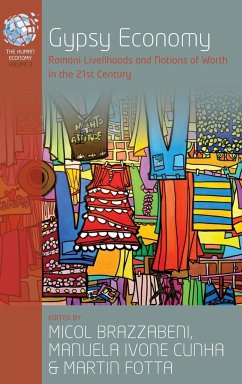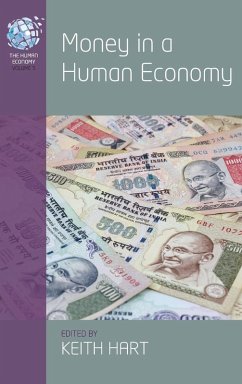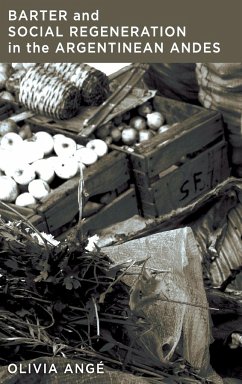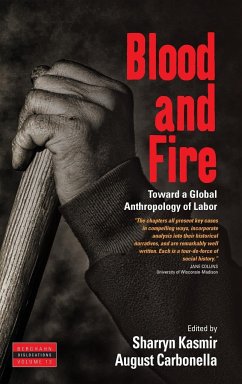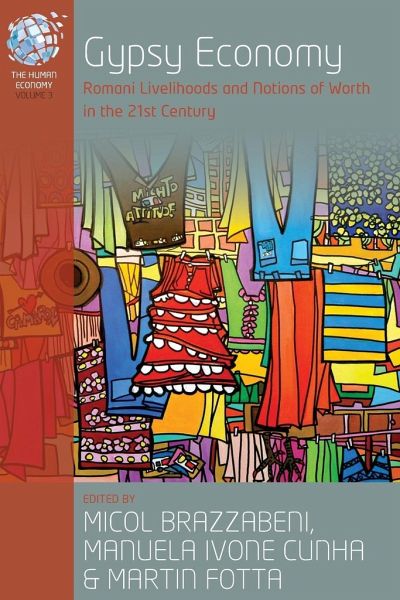
Gypsy Economy
Romani Livelihoods and Notions of Worth in the 21st Century
Herausgeber: Brazzabeni, Micol; Fotta, Martin; Cunha, Manuela Ivone
Versandkostenfrei!
Versandfertig in 1-2 Wochen
37,99 €
inkl. MwSt.

PAYBACK Punkte
19 °P sammeln!
An explanation of the relationship between the economic arrangements of members of Roma communities and their social position. An exploration of how economic exchanges forge key social relationships of gender and ethnicity, and how economic opportunities are constructed and seized. An analysis of how, despite their unstable and ambiguous position within the market economy, Roma and Gypsy communities continuously re-create more or less viable economic strategies.



